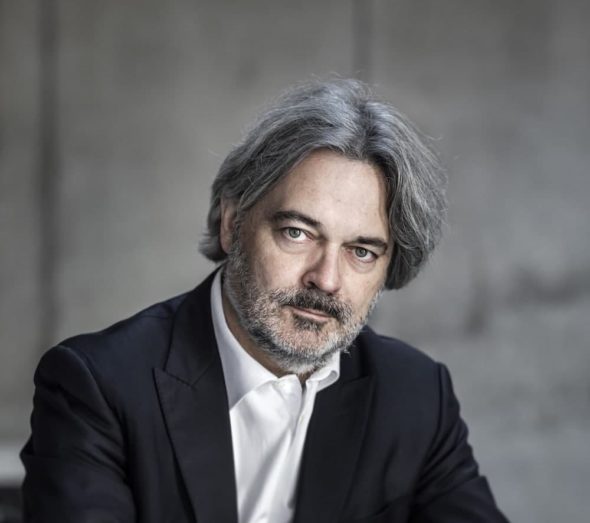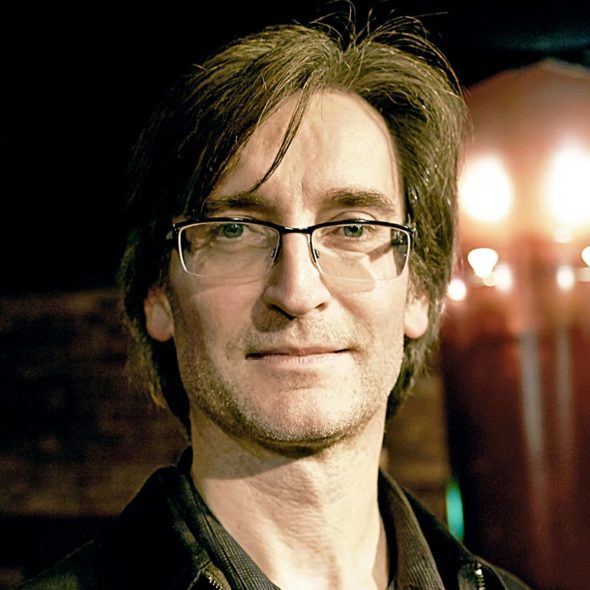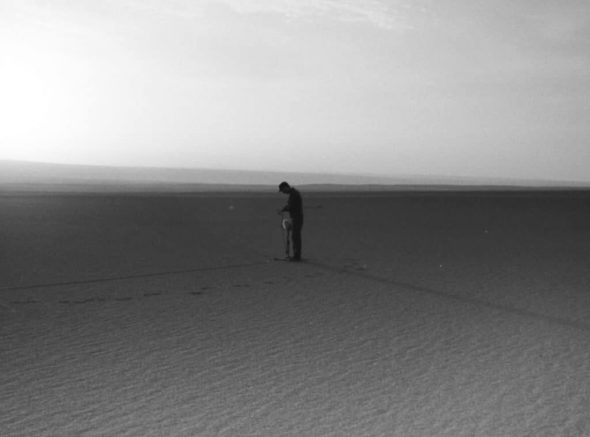
Since March 16th no more events are allowed to take place in Austria due to the Corona crisis. The local cultural scene is in a state of emergency. mica – music austria asked how musicians, organizers, agencies, label operators and curators are dealing with the current situation.
PETER PAUL KAINRATH (INTENDANT KLANGFORUM WIEN)

The damage is great – and so is the will to uphold the new in music! This year Klangforum Wien would have had three important performance series in the emerging Asian music scene. Apart from all the other cancellations, this is particularly painful because we hoped that these horizons would also have provided new impulses for our own work. It is not without a certain irony that the current disaster had actually started in Asia.
As far as planning is concerned, we want to compact all the work even more resolutely into a 2 to 3 year period, in order to absorb the actual arising heavy economic damage as well as possible over the next 2 years.
The forced absence from the stage provides the Klangforum Wien with an unexpected moment of reflection and time to examine and sharpen its own role in the music business – even beyond the scenes of New Music. Klangforum Wien is an ensemble of soloists – every single soloist is currently involved in the conceptual work for the coming years, and even more so than before, so that the additional boost of motivation can manifest itself as a future boost of strength.
VERONIKA GROSSBERGER (music mediator)

It is the strange feeling of a room void of air that I’m in at the moment. My potential employers are educational institutions and event organizers. Both areas of my activities are at a standstill at the moment, no wheel is moving. Festivals are already starting to cancel their summer dates.
The question marks concerning the future are piling up: Will I be able – let’s say in autumn – to carry out my job again? When can we expect regular performance and school operations at all? Will the funds for cultural and music mediation still be available at all?
A job like that of music mediation requires a high degree of identification. Not only are we currently robbed of our financial basis, but some part of our identity is being questioned by this crisis.
RICHARD GRAF (ÖKB – AUSTRIAN ASSOCIATION OF COMPOSERS, JAM MUSIC LAB UNIVERSITY)

The Corona crisis has “taken me by surprise” in my artistic-creative, but also university activities. We believed we were living in an “intact” world, but this global disease has all of a sudden shaken up a lot of things and showed us “how fragile we are” – to quote a line from the Sting song of the same name.
The problems are massive in parts, but nevertheless I’m personally trying to tackle this situation as a chance for me to allow for new perspectives and to make the best out of it all, in order to hopefully emerge from it all reinforced soon!
GOLNAR SHAHYAR (MUSICIAN)

The Corona pandemic has drastically changed our lives as freelance musicians. There are negative and positive effects which I’m trying to point out here:
Negative effects:
1. Financially: Most of my income in 2020 comes from the spring and summer concerts. Many of these concerts will now take place next year which means that I have lost my chance to earn my income for this year. I had planned to use this income to start a master’s degree course in Valencia. The new situation will have an impact on whether I can take this course. I’m wondering if I will even be able to earn enough to make a living.
2. One of my resolutions for 2020 is to invest energy and time to be more active politically and socially, both in music and in the music industry. It’s my aim to sharpen the awareness and initiate discussions on some issues in the music industry and music education that need to be urgently discussed and addressed. The pandemic has brought these activities to a halt for the time being, particularly now that priorities have shifted into another direction to ensure the survival of artists at first.
Positive effects:
1. I have time to collect my thoughts and think about what I want to do next and how I want to do it. I have time to learn many new things that will make me even more competent in my field and in my position as a musician.
I have time to approach others, albeit on a smaller scale, and to strengthen my network and community.
2. I’m now conveying some of my activities online which somehow makes my work easier. In this case, streamed live events are a fantastic alternative to stay active and have an income.
3. This pandemic has left many of my colleagues with uncertainties that have intensified their urge to form and strengthen a community. One of my plans is to raise awareness that more solidarity is needed to enforce better working conditions for our music community. This pandemic has opened up new realities for many of us who may not have been that much aware of these problems, and I hope that once things have returned to normal, we will be able to start these discussions in a stronger and more effective way. What has now become much clearer is that music professionals need their own union to determine and improve salaries, workload, conditions, etc. This union should strive to represent and strengthen the cultural diversity of our society in the music industry and in music education.
My plans:
1. To expand and strengthen my network online (By way of podcasts or a YouTube channel).
2. To offer some of my knowledge and services online and in this way earn a part of my income.
3. To reassess my priorities and perhaps start doing things that will benefit both myself and my community.
MANU DELAGO (MUSICIAN)

I am quite impressed by the fact of how fast our normality can change and by the implementation power of international governments and their actions. It is a pity that the climate crisis is not being taken as seriously as it should be or that less weight is being given to expert opinions. Let‘s hope that this will improve.
In my personal case I am currently facing 37 concert cancellations or postponements. As a bandleader I feel responsible for my fellow musicians and my crew and regret the big loss.
Personally I’m trying to see the positive side of things and to use my time constructively. On the one hand, I can give my body time to recover from some chronic aches and pains, and on the other hand I can do things that I have been putting off for a long time or for which there simply wasn’t time – reading, cooking, baking bread, playing online cards with friends, composing and in between some online activities such as live streams from home or posting the odd video. However, little has changed in terms of administrative work on the computer which still requires several hours a day.
Planning for the future is a challenge, of course, but in a way I like challenges, especially if they can be mastered. So now it’s time to listen to the experts, to follow the measures and hope that we can all hug each other again soon.
JELENA POPRŽAN (MUSICIAN)

My mood is constantly changing. I’m just trying not to immediately ruin the moments when I’m feeling well.
On the one hand, I’m enjoying all this time I haven’t had since my teenage years. Back then I didn’t know how to use it. And from March 15 on I put myself in quarantine anyway, not knowing of course that the world would be upside down by then. Ironically, I looked forward to that date for three months. The fact that there won’t be any concerts until at least the end of August is not easy to cope with either.
I have a problem with the online offer. We are forcing the live formats that live from the direct human contact, into a digital corset and voluntarily give up their inherent magic. In fact, we’re actually striving to do that. Streaming is certainly satisfying for a short time, but of course not an alternative. It’s just an attempt to stay on the ball and keep us happy.
We can’t do anything else anyway but give online concerts as an alternative and plan the next concerts in the usual way, because we just don’t know what’s coming up and what the future looks like…
But do we need even more sprinkling and distraction from our equipment which takes up too much space in our lives anyway? Should we not invest our energies in a solidarity struggle against inequality and discrimination of the weaker? Especially when we now have the time to do so? Yes, music gives people strength and reinforces cohesion, but it can also convey false bubbles.
Although I’m making a living exclusively from my live performances, their cancellation afflicts me much less than the uncertainty about how things will be with our human rights. The professions that enable society to function and that are now more visible than ever, can probably not expect a big pay rise or cuts in working hours, but instead small concessions and applause are given. I am afraid that our solidarity, apart from the acute and necessary help in everyday life, will simply remain a feeling, instead of transforming itself into a political force that demands redistribution and much more.
The new world we are dreaming of right now will not arise from our hopes. We should be working for them, and we should be working for them now.
To the virus, all men are equal, but unfortunately that is not true for humans. It does not help us to have clichés about values when even viruses are superior to us!
PETER KUTIN (MUSICIAN)

Of the very many questions, the one circulating most in my head is the one about the direction into which our society will develop itself. Of course, several public performances have also been cancelled in the long term, including those I was looking forward to immensely and which would have secured the year 2020 financially speaking. In fact, however, my professional life is of secondary importance to me. Consequently, I am aware that I am writing these lines from an extremely privileged situation.
If you talk to freelance colleagues from Slovenia, their situation is already different. Meanwhile there’s a convicted arms dealer ruling there, and this has been somewhat overlooked by the media. Such people acknowledge and appreciate art especially, of course. When I look beyond Europe’s own nose, the situation of many artists there often eludes my Eurocentric imagination. In one of the richest (and still) democratic countries in the world, one usually has to deal with 1st-World-Problems, even in times of crisis.
A strikingly large number of colleagues tell me that this break is very good for them, despite occasional existential and political fears. The meritocracy with its neoliberal turbocharger is in the workshop, somewhat ailing. This experience should ideally be a formative and instructive one, not only because of a sky without aircraft noise. Yet I venture to doubt that capitalism has suffered serious engine damage as a result of this outside shock (Mason, 2018).
In the current repair phase many signs are being redefined, i.e. (if you like) updated semantics are being introduced. Srećko Horvat explains this quite cleverly in his YouTube lectures. The main question now is who is allowed to attribute to these signs their new, updated content – because this will have a decisive impact on our behavior, our reality of life, our society (Horvat, 2020). Are we becoming (even) more xenophobic, are we closing off the borders (even) more?
In Portugal, due to Covid-19, migrants are put on an equal foot socially with nationals. In this country, humanitarian values are not in great shape, except when it comes to the well-being of all Austrians and their solo-asparagus. The political cynicism that comes to light in this crisis is brutal to say the least, and is rarely disturbed by ugly images.
Times like these, when the state appearing at press conferences more or less as an educator, tells the people living in Austria how many people one may meet at how many meters distance and where one should/could perhaps be allowed to rehearse under what circumstances – provided one does not belong to the group of hobby artists – leave me thoroughly astonished. Personally I’m trying to fade out the educational measures of Uncle Sam by (to the best of my conscience) acting responsibly, after all, mental health is also at stake and this has a tremendous importance for our everyday life.
In this respect, I’m hoping to a great extent that after art’s retreat into the digital living rooms the public space will now be the issue and also be claimed for this purpose. How can we organize meaningful and substantial events during a pandemic? Right now new formats can be invented that also take place outside the digital noise/rapture, because we have not yet melted together with virtual reality. This will only happen then, in the near future (Strick, 2020).
How can one position oneself politically against an absolute majority that simply fades out people in desolate misery camps and simply wants to forget them in the chaos of madness, i.e. once again wants to ‘not have seen’ them?
This is only one of the evil blind spots which threaten to arise in this exceptional situation (which some politicians also call war) and which in the worst case could lead to condemnable crimes against humanity. But where there’s no plaintiff, there’s no judge. So it’s up to us.
But just now in these days something seems to be moving. There are many, many people in this city whose first priority is humanitarian action. Slowly it becomes clear that physical and not actual social-distancing seems to be the appropriate measure. This pandemic will last a long time, that is foreseeable, and the summer, which is now still spring, will be an equally extended one. After three weeks of self-isolation, the sight of my calendar for the month of May, which is now empty, literally struck me in the face. I saw a bizarrely condensed schedule whose individual stations seemed to be separated only by the distances to be traveled. Having become accustomed to the compression of time and the increasing dissolution of space (Virilio, 1986), we have manoeuvred ourselves into a speeding standstill (Zschocke, 2005) in which progress is only possible with difficulty and the greatest of efforts.
But now, however, since a long time, we are having once again a (public) space and time. Let us not allow this to become (according to Katharina Klement) a temps perdu and a lieu oublié.
Sources:
Horvat, Srécko. (2020). The virus mythologies. (https://www.youtube.com/watch?v=OSw0Y47Clp8)
Mason, P. (2018). Postkapitalismus. Suhrkamp Verlag, Berlin
Strick, S. (2020). Digitally Drunk. (https://www.zfmedienwissenschaft.de/online/blog/digitally-drunk)
Virilio, P. (1986). Ästhetik des Verschwindens. Merve Verlag, Berlin.
Zschoke, M. (2005). Mobilität in der Postmoderne: psychische Komponenten von Reisen und Leben im Ausland. Königshausen u. Neumann, Würzburg
(https://www.sueddeutsche.de/politik/slowenien-jansa-orban-1.4823410)
Translated from the German original by Julian Schoenfeld
Read the first part of our statement series here, and here.
